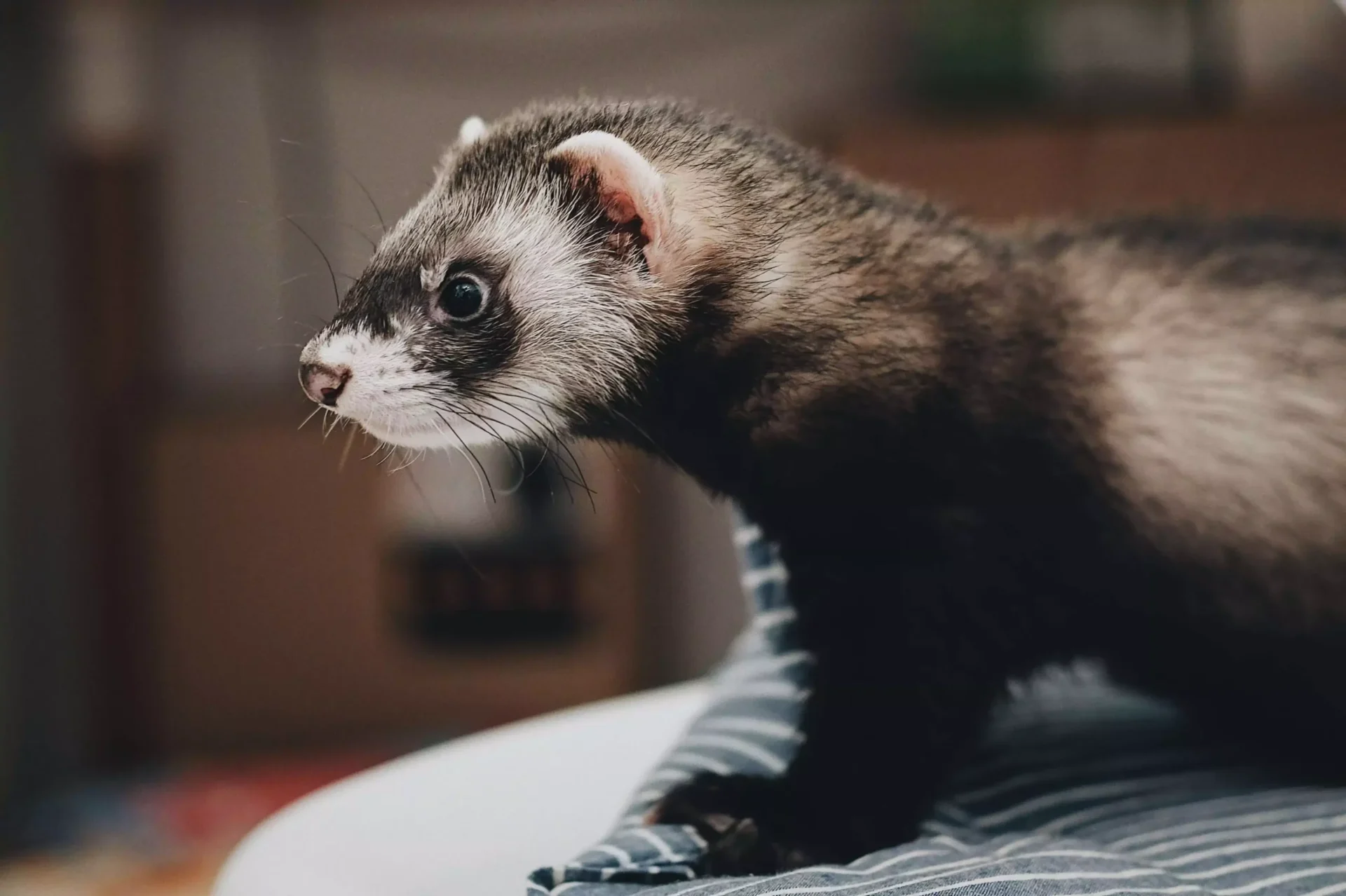February is National Cat Health Month! Kitties are known for being one of the easiest pets to keep. You won’t have to walk or train your feline buddy, and she’ll take care of her own grooming needs. Most kitties also spend a rather ridiculous amount of time sleeping, which also helps make them easy keepers. However, Fluffy does need more than fresh water and kibble to stay happy and healthy. A local Longwood, FL veterinarian offers some ‘purrfect’ advice on being a great kitty owner in this article.
Keep Up With Your Kitty’s Veterinary Care
Kitties are fairly hardy, but they aren’t nearly as invincible as they think. In fact, these charming little furballs are quite small and fragile.
First things first: we recommend that all kitties be microchipped and spayed or neutered. This ideally should happen while your feline buddy is still young. However, the procedures can also be safely performed on adult cats.
Wellness care can protect your pet from a vast array of dangerous parasites and diseases. Fluffy will need the core vaccines, which include (FHV-1) feline herpesvirus-1; (FPV) feline panleukopenia; rabies; (FCV) feline calicivirus; and, for kitties under a year old, (FeLV) feline leukemia. Your vet may recommend some non-core vaccines, such as (FeLV) for cats older than one year), Chlamydia felis, and Bordetella bronchiseptica vaccines.
Keeping up with Fluffy’s parasite control is also important, even with indoor kitties: parasites such as fleas, ticks, and mosquitos can and do get inside. There are many different products to choose from, so talk to your vet.
Don’t Ignore Signs Of Sickness
You’ll need to watch for signs of sickness. Cats can be tricky here, as they often hide signs of sickness until their conditions have become quite severe. Some of the signs that your feline buddy isn’t feeling well can be quite subtle, so it’s important to keep a close eye out.
Here are some things to watch for:
- Litterbox Avoidance
- Respiratory Issues
- Discharge
- Reduced Appetite
- Poor Grooming
- Withdrawal
- Vomiting
- Diarrhea
- Grumpiness
- Lethargy
- Fever
- Disorientation
- Uncharacteristic Behavior Or Vocalizations
Contact your Longwood, FL veterinary clinic immediately if you notice anything amiss. The sooner an issue is diagnosed and treated, the better!
Provide Your Cat With Enrichment
Cats are hunters by nature, so they are instinctively driven to mimic the hunting behaviors and skills that would help them score dinner in the wild. Keeping your kitty entertained will go a long way towards keeping her content. Provide a variety of toys for her to smack under the sofa! We also recommend playing with your kitty for at least a few minutes a day.
Keep in mind that kitties all have their own individual tastes. Some like string toys, some prefer catnip mice, some want to chase that little red dot from a laser pointer, and some are purrfectly happy playing hockey with an ice cube or bottlecap. Experiment a bit, and see what Fluffy likes. If you have multiple pets, offer a variety: your furry pals may not have the same taste.
Make Your Place Cat-Friendly
No matter how big your home is, you’ll want to take a few steps to make it cat friendly.
Consider adding some cat furniture. A good scratching post or board is a must! Fluffy will also appreciate a cat tower: this will provide not only a scratching post, but also a kitty lookout point.
You can also make your home more fun for your furry friend by giving her vantage points and things to explore. A good window seat can keep a cat occupied for hours. Birdwatching is one of our feline buddies’s favorite activities! If you want to go all-out, make your pet a catio or even an enclosure!
Give Your Feline Friend High-Quality Food
Feeding Fluffy isn’t exactly rocket science. However, there are some things to consider.
Fluffy’s exact dietary needs should be based on her age, health, and lifestyle. You will have some decisions to make, such as whether to feed her wet food or kibble, and whether you want to free feed her or give her meals at specific times. Ask your Longwood, FL vet for specific advice.
Choosing the right food may be the trickiest part. These days, companies have got advertising gimmicks down to a science. Many pet food manufacturers employ slick tactics to help their products look like the best. Get into the habit of reading labels. As with human products, pet food manufacturers are required by law to label their products in certain ways. The ingredient that is listed first is the main ingredient, proportionally. Meat, fish, or poultry should always be listed first on the label, and more often than other ingredients. Stay away from brands with long ingredients lists that read like science projects.
Fresh water is also a must. You may want to get your cute little pet a drinking fountain: many cats prefer to drink running water.
Keep Your Cat Safe By Petproofing
Cats don’t actually have nine lives, but it’s not too hard to see where this misconception came from. Fluffy does have a knack for getting into—and sometimes narrowly escaping—mischief.
Petproofing is very important. This entails removing or securing anything that isn’t safe for her. That list includes anything small or sharp, such as beads, buttons, safety pins, jewelry, and small toy parts; plastic bags and ties; anything ropy or stringy; and toxic plants. (You can find a list on the ASPCA site here.)
Chemicals and medications are another big concern. Poisonings are one of the biggest reasons for emergency visits, and, sadly, are one of the main causes of death for household pets.
Here are some of the things that are toxic to our feline friends:
- Automotive products
- Fertilizer
- Pesticides
- Cleaning agents
- Paint
- Drain openers
- Detergents
- Rodenticides
- Bug Spray
- Medicines, whether prescription or OTC
Keep in mind that cats only need to walk through a puddle of chemical cleaner or get a little spilled on their fur to be in trouble: they can ingest it cleaning themselves. Ask your Longwood, FL vet for more information.
Keep Your Cat Inside
Kitties are bold and adventurous, but we recommend restricting your furry little adventurer’s explorations. As soon as your feline buddy goes outside, she’s exposed to a wide range of hazards. These include cars, weather, chemicals, stray cats, predators, parasites, and, unfortunately, some people.
Don’t forget that cats are, well, fluffy little serial killers. Our feline buddies have been proven guilty of killing many types of animals, including several threatened species. Grounding your pet will also help protect local wildlife.
Make Sure Your Cat Feels Loved
Cats are very emotional, and they can get extremely attached to their humans. It’s important for our feline buddies to always feel loved and safe. Spend time with your cute pet every day, and just pay attention to her. Many kitties are lap cats, who love curling up on their owners’ laps as we are reading or watching TV.
The more you interact with your pet, the more interactive she’ll become. Even just talking to Fluffy can get that motor going. Some cats will talk back, some will only meow when they want something, and others will just listen. The point is that your feline pal will know that you’re trying to communicate with her. That will definitely help with bonding.
Our Advice on Top Ways To Be A Great Cat Owner in 2024
Why are routine veterinary checkups and vaccinations essential for cats?
Routine veterinary checkups and vaccinations are essential for cats to protect them from various diseases and parasites that can severely impact their health. These preventative measures help identify health issues early on when they are more treatable and manage chronic conditions effectively. Vaccinations are crucial for preventing serious diseases such as rabies, feline herpesvirus, calicivirus, and panleukopenia, which can be fatal. Regular checkups also ensure that your cat remains healthy and receives appropriate care for its age, lifestyle, and any emerging health concerns, keeping them happy and healthy for years to come.
How can you protect your cat from dangerous parasites, even if it lives indoors?
To protect your indoor cat from dangerous parasites, maintain regular parasite control measures, including administering preventative medications against fleas, ticks, and heartworms, as recommended by your veterinarian. Ensure your home is clean and free from pests by vacuuming regularly and promptly disposing of garbage. Use screens on windows and doors to prevent mosquitos and other insects from entering. Regular veterinary check-ups will help detect any signs of parasite infestation early, allowing for prompt treatment. Even indoor cats can be exposed to parasites brought in from outside, so preventative care is crucial.
How do you deter your cat from scratching furniture?
To deter your cat from scratching furniture, provide appealing alternatives like scratching posts or pads made of materials cats love, such as sisal, cardboard, or wood. Place these near the furniture they’re drawn to. Encourage use by sprinkling catnip on the alternatives or using toys. Consistently redirect your cat to these appropriate options when they attempt to scratch furniture. Cover favored scratching areas on furniture with double-sided tape or a plastic sheet to discourage them. Consistency and positive reinforcement when they use the correct items are key to changing this behavior.
How do you introduce a new cat to your existing pet(s)?
Introduce a new cat to your existing pets gradually. Start by keeping them in separate areas, allowing them to get used to each other’s scents without direct contact. Swap bedding or toys between the new and existing pets to familiarize them with each other’s scent. Gradually introduce visual contact through a baby gate or cracked door. Supervised, brief face-to-face interactions should follow, gradually increasing in time as they become more comfortable with each other. Use positive reinforcement, like treats and praise, to encourage calm behavior. Patience and slow introduction are key to a successful integration.
Beyond routine vet care, what potential unexpected costs should you be prepared for with cat ownership?
Beyond routine veterinary care, be prepared for potential unexpected costs such as emergency medical treatments, dental care, and medication for sudden illnesses or injuries. Costs for diagnosing and treating chronic conditions like diabetes or kidney disease can also arise. Additionally, expenses for behavioral therapy or modifications for issues such as inappropriate urination can occur. Investing in quality pet insurance or setting aside a savings fund for your cat can help manage these unforeseen expenses, ensuring you’re prepared to provide the best care possible throughout your cat’s life.
Is your kitty due for an exam? Do you have questions about cat care? Contact us, your local Longwood, FL pet hospital, anytime!






!Social Media Icons